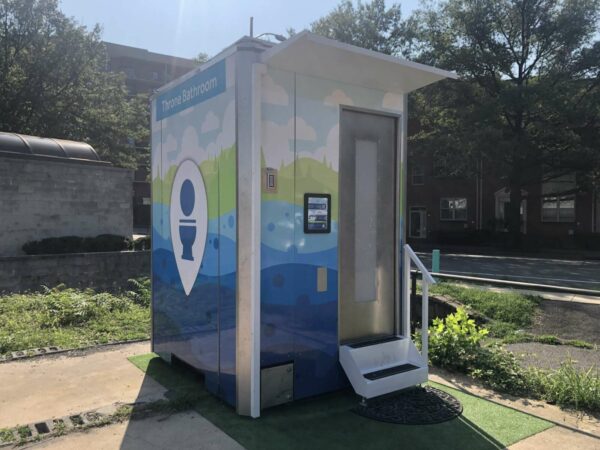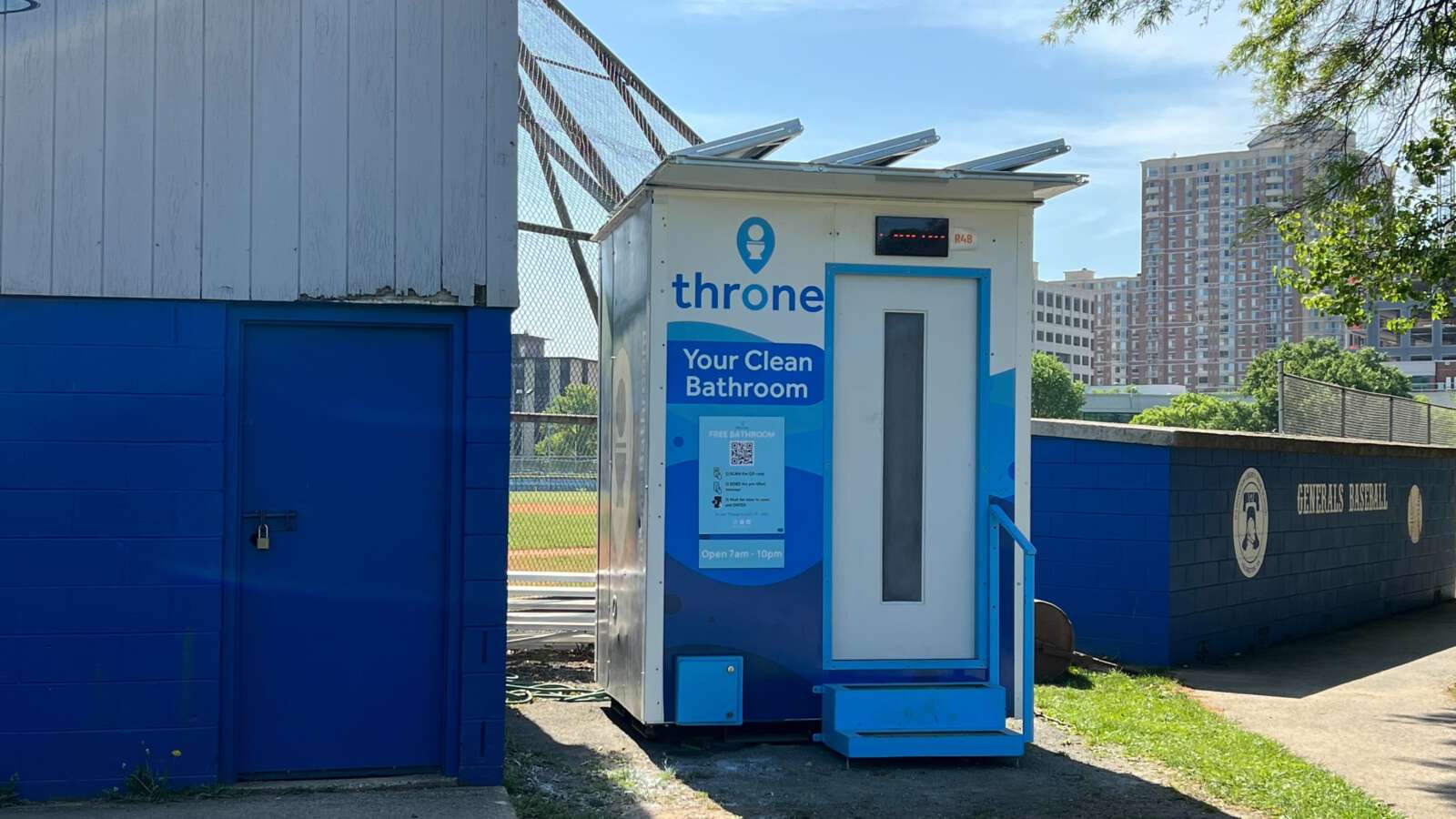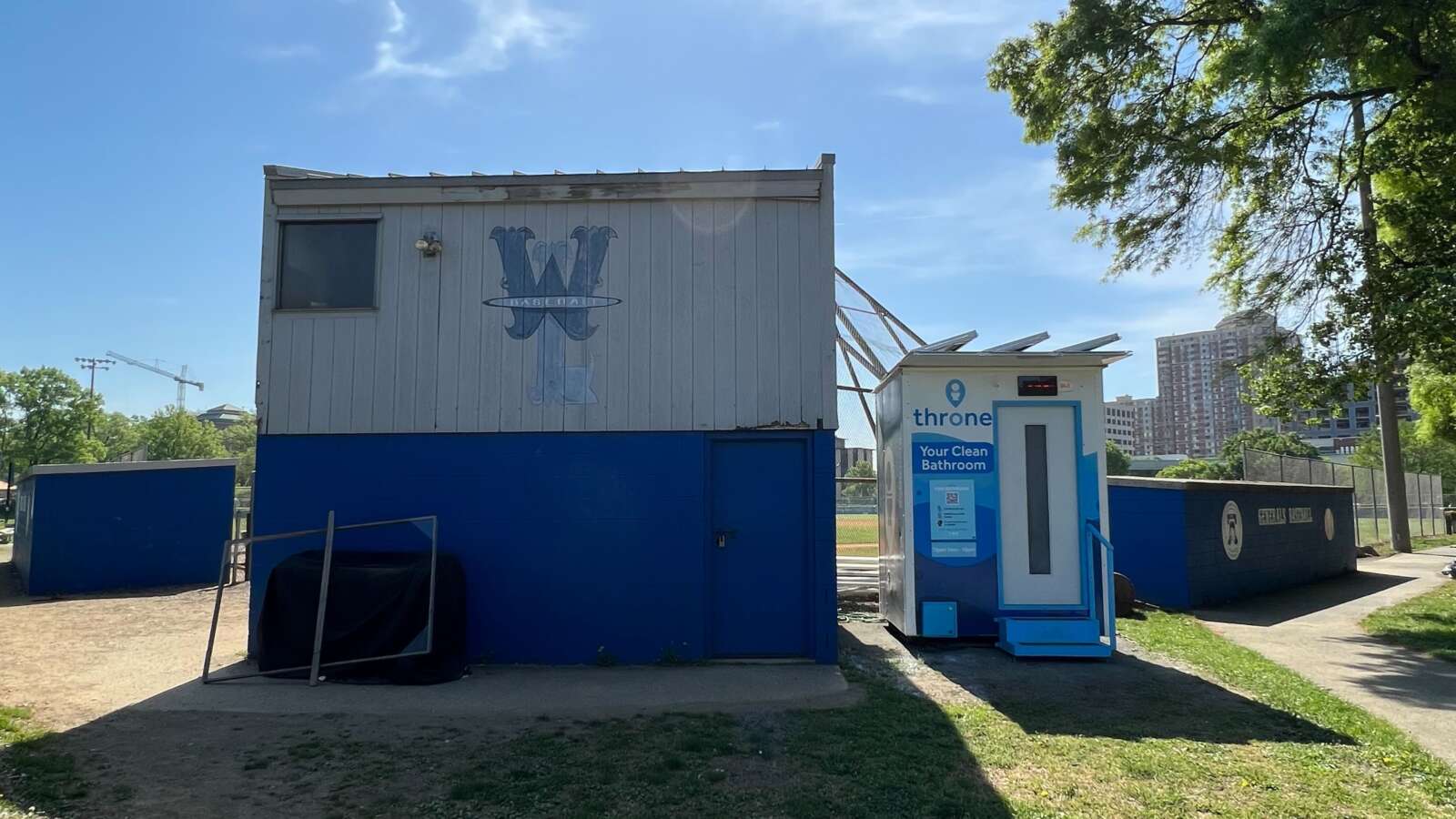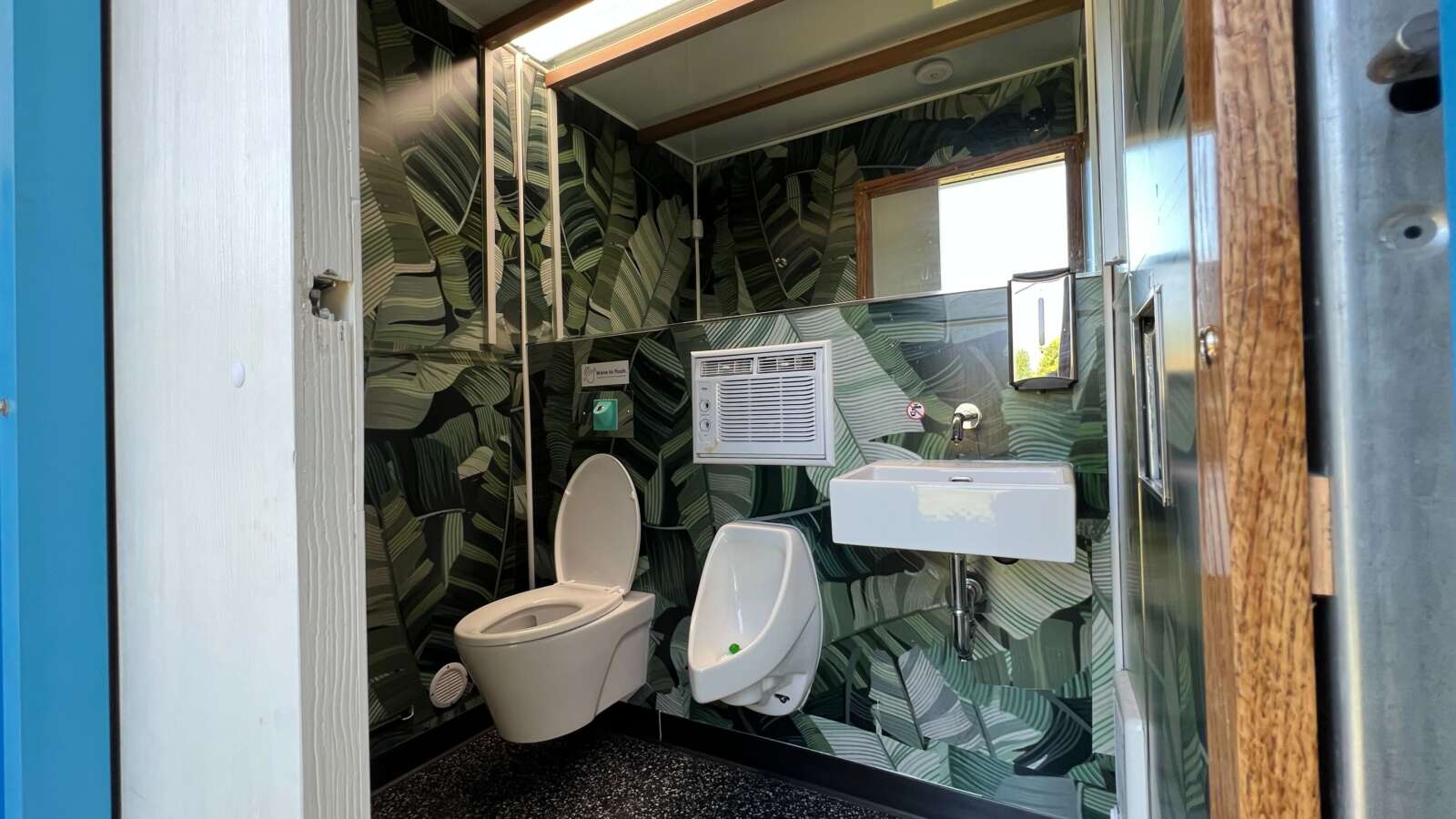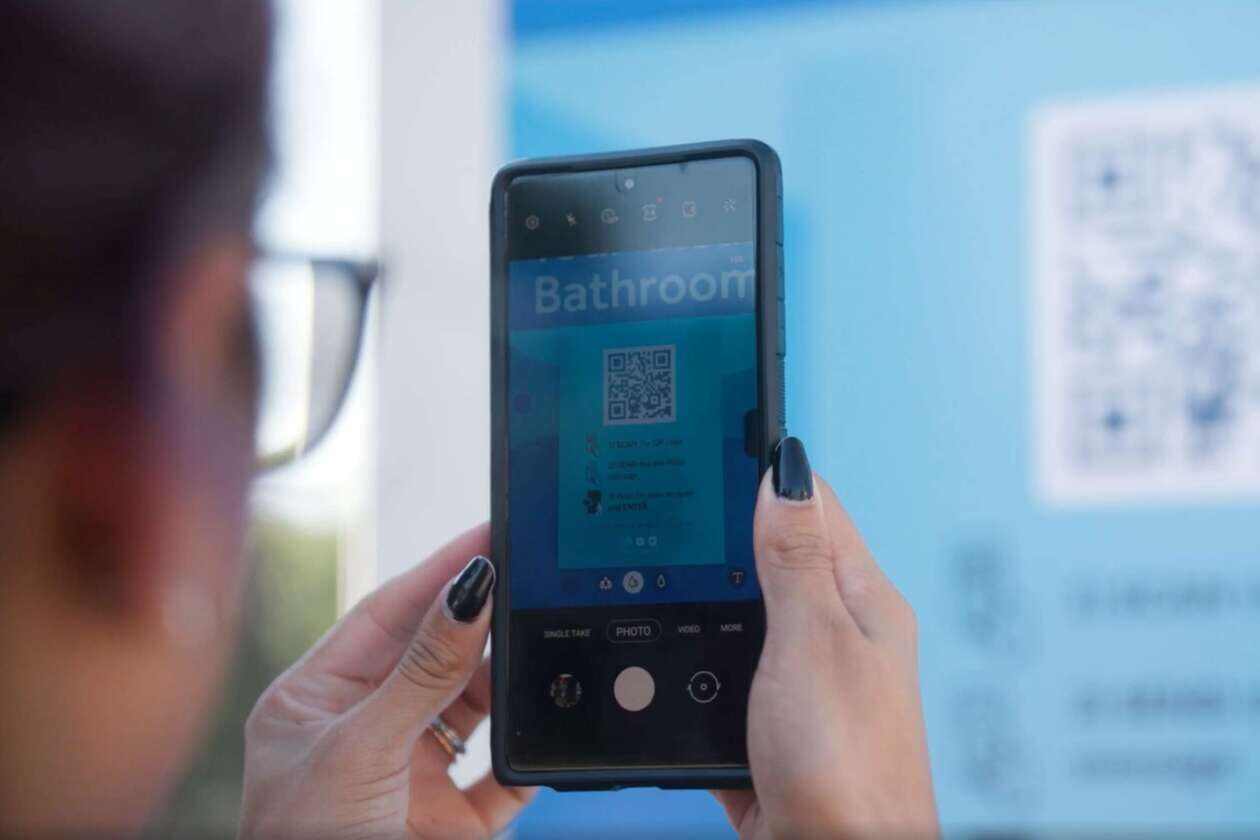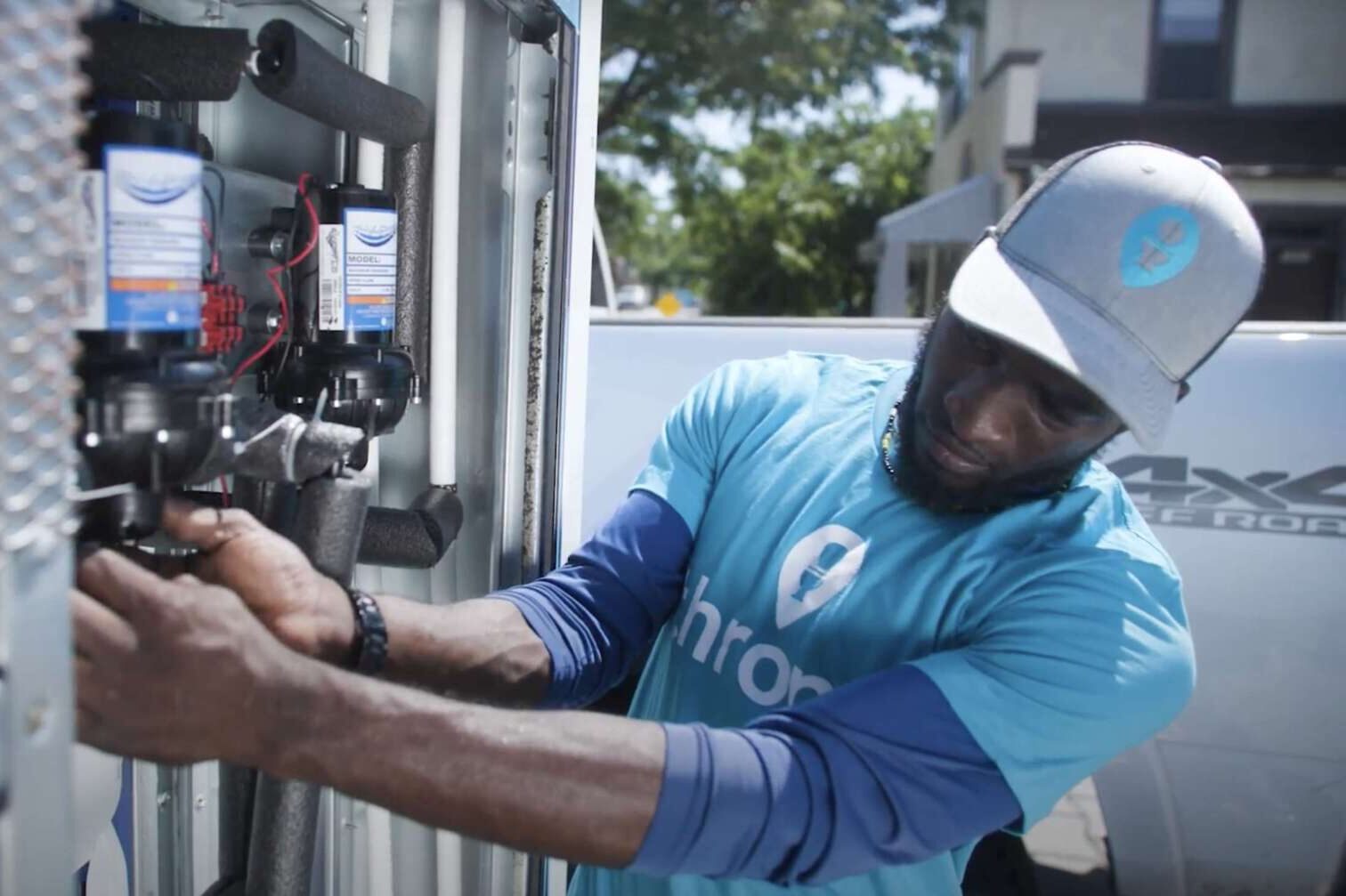The fields at Washington-Liberty High School have new temporary toilets for baseball players, softball players and spectators.
These are not run-of-the-mill port-a-johns, either. The facilities, developed by D.C.-area startup Throne, give users the royal treatment with running water for flushing and hand-washing. Users simply text a phone number to gain entry and provide a cleanliness rating via text after they use it.
Kevin Healy, the assistant director of student activities at Washington-Liberty, credited a parent for making the partnership possible and Throne for loaning them for free through the end of May.
“We were just lucky we had parents looking into it who found the set-up for us,” he said. “The company was very cool about it.”
Healy says having a toilet near the baseball and softball fields is a big improvement for players, coaches and spectators.
“Typically, we’ll get one port-a-john during the season. Outside that, we have to go to the library to use any kind of facility,” he said. “We do have a port-a-john that the county put in place, but if you have a well-attended game [and] if you’re in the middle of a game… you don’t want to miss time jogging over in a ‘crisis situation’ to go in the building.”
Softball players often wind up having to go all the way to the W-L pool to find a bathroom, he said.
Located in Brentwood, Md., Throne aims to solve a handful of problems with bathroom access in the U.S.: quantity, cost, cleanliness and accessibility.
“Our co-founding team is passionate about expanding access to bathrooms,” co-founder and Chief Operating Officer Jess Heinzelman told ARLnow.
It can be expensive for municipalities to connect to water and sewer for brick-and-mortar bathrooms, which is why there can be access issues at school fields and parks, Heinzelman said. Cleaning them can be a headache, she added, because “a few bad apples ruin publicly accessible bathrooms for everybody.”
Throne considers the easiest alternative, port-a-johns, a “last resort” because they can be hard to find, locked and unpleasant.
“We set out with goal to drastically reduce costs while also using new technologies available to help introduce accountability to bathroom use without being creepy,” she said.
It takes a few hours to install a Throne, which uses solar power and rainwater catchment to provide running water for flushing and hand-washing. Smart sensors monitor use rates and maintenance needs and the company’s technology makes it possible to restrict access for people who vandalize the units or degrade their cleanliness.
Throne has built and tested out its toilets across the D.C. area over the last 2.5 years and has developed a step-up model, as well as one accessible for people with disabilities. The startup is readying for a commercial launch this spring, meaning people will see more installed in the District, the City of Fairfax and elsewhere.
Heinzelman said it was an easy decision to let W-L use the facilities. Its accessible units are in high-demand and the company had two unused step-up units that needed a home.
“We’re really excited to have them getting used,” Heinzelman said. “The student athletes seem to be liking them.”
Some may recognize the free-standing facility from the REEF Kitchen trailers near the Whole Foods in Clarendon. This was the startup’s first-ever pilot potty, serving the staff of the ghost kitchens, who cook food for delivery-only on platforms like Grubhub, as well as delivery drivers.
“Gig drivers are one of the major groups that has trouble finding restrooms because they’re working from their car and they’re not allowed to use the bathrooms of restaurants or places that they’re picking up from,” Heinzelman said.
